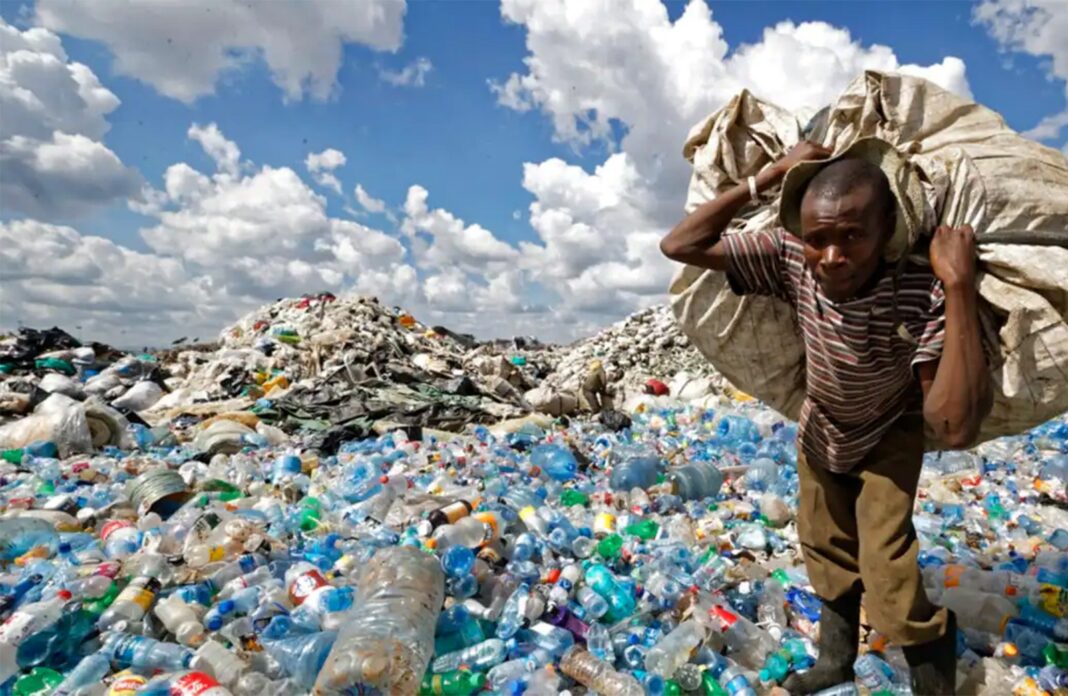By Matṧeliso Phulane
Lesotho has been nominated among the southern African regional countries by the Africa Institute with the aim to tackle the plastic pollution across the country.
In order to address the issue, the ministry of tourism, environment and culture has struck an agreement with the Africa Institute to take strong measures to combat plastic pollution. It is planned that robust efforts for managing plastic waste by promoting collection, sorting and recycling activities will be undertaken.
Africa Institute is an inter-disciplinary research institute dedicated to the study, research and documentation of Africa, its people and its culture; its complex past, present and future; and its manifold connections with the wider world.
It is a globally orientated institution with a focus on the humanities and social sciences that will have a post-graduate studies programme offering both Master’s and Doctorate Degrees with the aim of training new generation of critical thinkers in African and diaspora studies.
The efforts to fight plastic pollution dawns as plastic can be a serious menace on land base by clogging of drains, threat to domestic animals and wildlife as well as diminished aesthetic of the country.
Addressing the participants at the workshop which was held in Maseru this week, the director of environment in the ministry of tourism and culture, Stanley Motsamai Damane, said Lesotho is facing a critical challenge of plastic waste; hence a need to implement law that discourages its use. He also advised for recycling of plastic to protect the environment.
“Through plastic recycling, there will be job creations which will benefit Basotho. If we implement laws, and inform people about plastic management we will conquer pollution.
“Besides that, as the country, we have to learn from what other countries are doing. We should have enough commitment amongst ourselves to persuade others to stop pollution,” Damane urged.
Among other project initiatives that were stipulated were drafting of solid waste management bill and plastic levy regulations.
At the same occasion, Thandeka Mbatha, the representative of Africa Institute in South Africa said the reason for initiating the regional project was that the SADC region has not undertaken significant coordinated action to address plastic waste.
“Also, it does not have harmonized data sets or a regional strategy for the environmentally sound management (ESM) and control of Trans Boundary movement (TBM) of plastic waste to serve as a basis for priority setting, policy and regulation development as well as implementation.
“As a result, this project will lay a strong foundation for an effective, coordinated and well-planned approach to ESM and control of TBM of plastic waste that involves all key stakeholders and is based on concrete data, unique and common characteristics of the participating countries, and provisions, guidelines, and guidance of the Basel Convention, in particular the Plastic Waste Amendment
“All the regional countries including Lesotho, Namibia, Malawi, Tanzania and Zambia have been allocated the amount of US$177 150 (about M2,855,000) for a duration of 12 months,” Mbatha observed.
She further said other activities meant for the project budget were to develop a national and first regional inventories. Apart from that, it will undertake communication, training awareness on regional strategy thus through different media sectors, she warned.
As part of facilitating the process, the national and regional committees have already been established while workshops are in the pipeline to create awareness about the plastic pollution.
It was at this event where Moleboheng Petlane, a legal officer at the department of environment gave a brief on Environment Act 2008 said it entails the development of standards and guidelines for waste management, issuance and cancellation of waste licenses, prohibition of importation as well as exportation of hazardous waste.
Additionally, the local Act 1997 involves environmental protection through protection from pollution and preservation of the environment for public health through refuse collection of disposal.
The project is also intended to work cooperatively with Maseru City Council (MCC) and other exiting recycling organisations such as Pheha Plastics.
The manager of Pheha Plastics, Maleshoane Mohanoe said the non- profit organisation uses plastic to make clothing pegs, key holders, jewellery and buttons.
She hoped the government would assist the organisation with some funding in order to combat the increasing pollution by increasing recycling centres.
“We want to have more recycle centres across the country because there is only one existing at Morija. Our aim is to make a greener Lesotho,” Mohanoe concluded.









